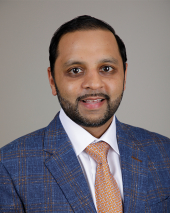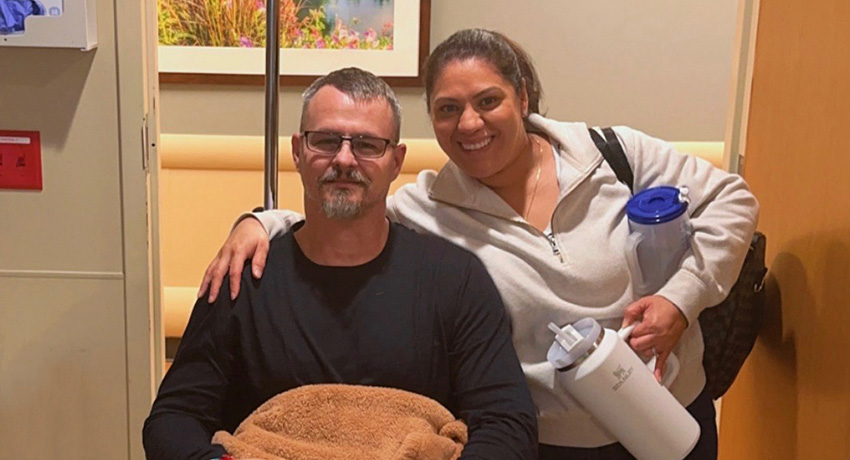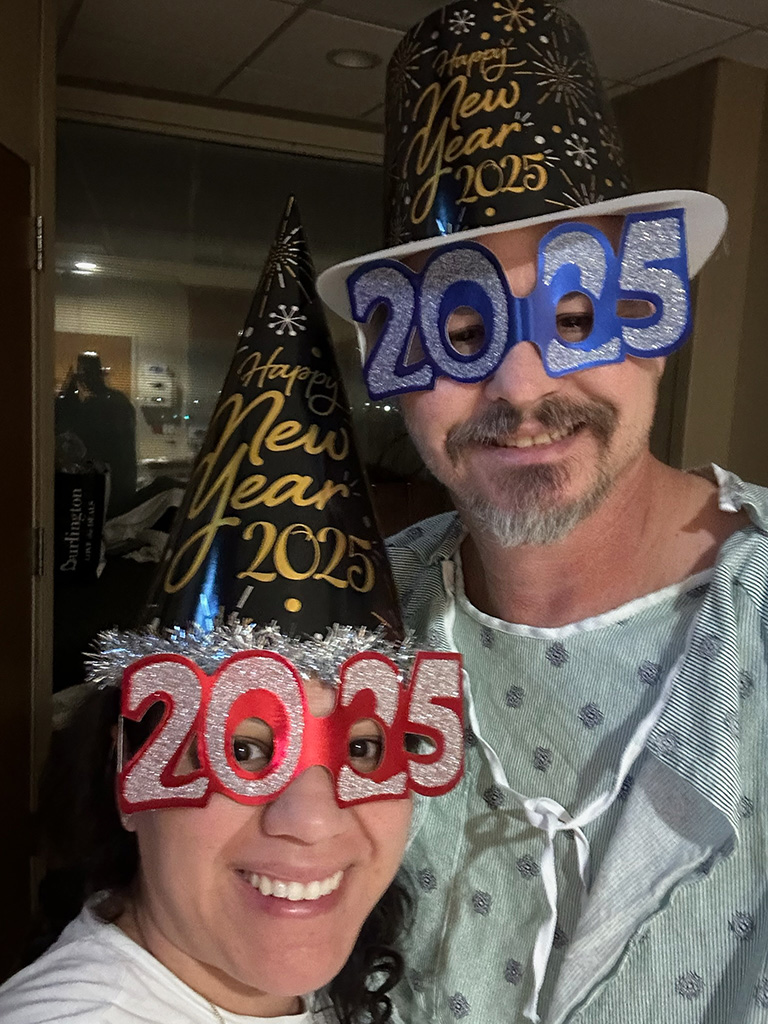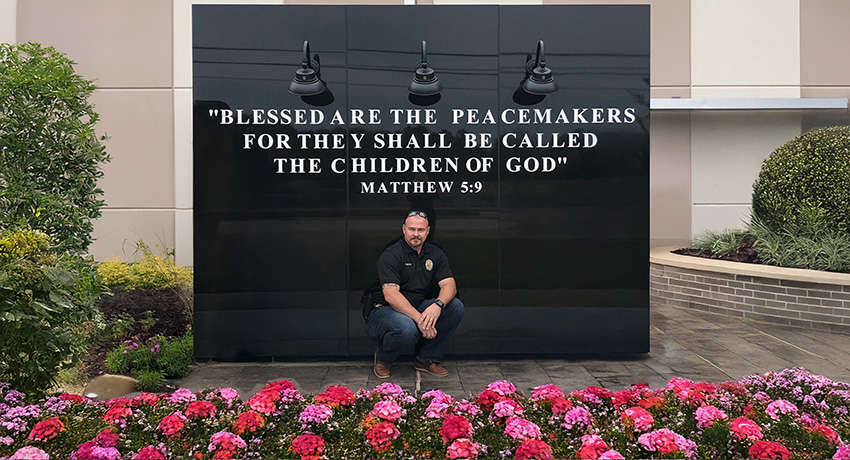For six years, James Williams brushed off and tried to ignore his symptoms — ongoing constipation and rectal bleeding — since it was believed hemorrhoids were the cause. His wife, Rebecca, decided to schedule a colon cancer screening for him in December 2024, which proved to be a lifesaver for the 51-year-old police officer. The results showed James had cancer.
“I probably wouldn’t have done the colonoscopy if my wife hadn’t scheduled the appointment for me,” James said. “I’m glad she did.”
Watching symptoms

In the last two years, James’ symptoms worsened. He had changes in his stool, with loose bowel movements and diarrhea occurring out of the blue. He equated it to traveler’s diarrhea. Plus, he was bleeding every time he used the restroom. James spoke with his primary care physician and completed a stool-based test at home, collecting a stool sample for the kit. The results came back negative.
“I had this false sense of security from the home screening test that it’s not cancer. But in fact, it was growing,” James said. “I was having issues for quite some time, but I put it in the back of my mind and disregarded it.”
Amit K. Agarwal, MD, a colorectal surgeon at UT Physicians Colon & Rectal Clinic – Sugar Land, explained the value of colonoscopies.
“Healthy patients should get a colonoscopy to visualize the colon and treat or diagnose any underlying findings,” said Agarwal, an associate professor of surgery at McGovern Medical School at UTHealth Houston. “In my opinion, home tests should be reserved for patients unable to undergo anesthesia.”
Moving forward

James visited Agarwal for his first colonoscopy, which revealed rectal cancer. The surgeon ordered multiple tests to determine if it had spread to other parts of James’ body, but, thankfully, it had not.
James said that initially, he couldn’t believe he had cancer and felt like he was in a fog.
“The idea of cancer turned my world upside down, thinking of so many things left undone,” James said. “The uncertainty was a big part because I didn’t know if they would be able to remove it all.”
Because James’ cancer was early in its growth and contained, he could proceed straight to surgery without chemotherapy or radiation treatments.
Using robotic-assisted surgery, Agarwal removed part of James’ colon and the upper third of his rectum and then attached the colon directly to the remainder of the rectum.
“I told James from day one that his prognosis was great,” Agarwal said. “He had the right mindset, and the lesion appeared to be in its early stages.”
James considers himself one of the lucky ones who caught it early. Through his Christian faith, he didn’t believe he had come this far to be taken out by cancer.
“I don’t think that was God’s plan. With everything put in place, it was caught in time,” he said. “I haven’t figured out the lesson behind this experience other than maybe a test of faith. Or that my story will help someone who needs it.”
A positive outcome

Now cancer-free, James has regular follow-up visits with Agarwal — three times a year for the first two years and then twice a year for the next three years.
James’ journey demonstrates how early detection and prompt treatment can lead to a positive outcome. His experience inspired many fellow officers to get a colonoscopy, considered the gold standard for colorectal cancer screening. His message to others is clear: Get it done.
“As a police officer, you get to the point where you are private and don’t trust as much. But something like this should definitely be shared,” James said. “Hopefully, my story will get out to others to encourage them to get screened.”
Just do it
Agarwal said colon cancer is affecting younger patients and is now the second leading cause of cancer-related deaths in the United States. Many patients avoid the procedure due to the night-before preparation process to empty the colon of fecal matter. This critical step enables the doctor to see the colon lining clearly and any growths, lesions, or abnormalities.
Agarwal said preps are now available today that make it a bit more bearable, such as multiple small-volume liquid preps in place of the old 4-liter prep and a pill form.
“The fear of bowel prep shouldn’t be the reason for not doing a colonoscopy,” said Agarwal. “James is a prime example of why everyone should get a colonoscopy. One procedure could potentially save your life.”
Guidelines for Colorectal Cancer Screenings
| Age 45 to 75 | It’s recommended that adults be screened for colorectal cancer beginning at age 45. |
| Before age 45 | People with a family history of colorectal cancer or colorectal polyps may need to be tested earlier than 45. This also includes those with an inflammatory bowel disease (Crohn’s disease or ulcerative colitis) or a genetic syndrome. |
| Test options | Several test options are available. This includes stool-based tests and visual (structural) exams of the colon and rectum with a colonoscopy or sigmoidoscopy. |
Source: Centers for Disease Control and Prevention and American Cancer Society
Contact the UT Physicians Colon & Rectal Clinic for information or to schedule an appointment: (713) 486-4740.


